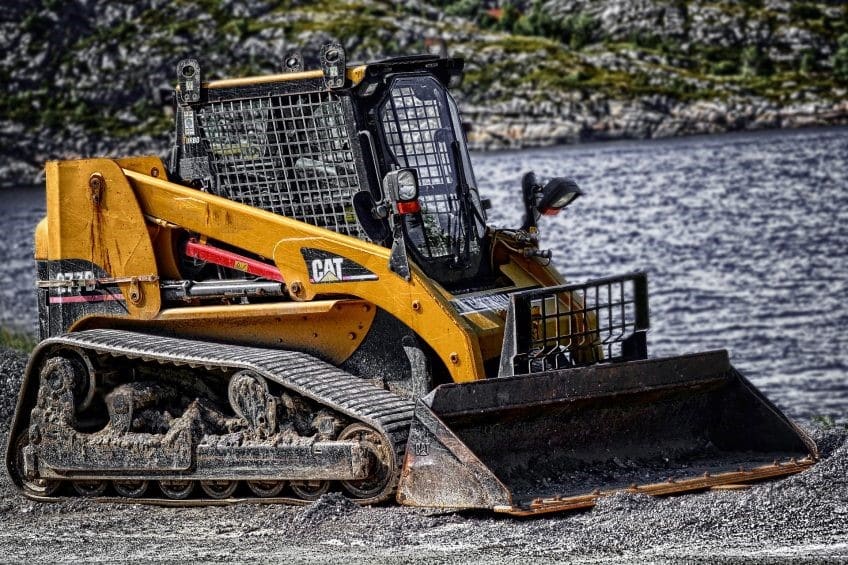Gross Negligence May Overcome Work Comp Immunity
Personal InjuryIn the case of Ramsey v. Dewitt Excavating, Inc., Case Number 5D17-311 (Fla. 5th DCA June 15, 2018), Florida’s Fifth DCA held that there was enough evidence to allow a jury to decide whether a fellow co-worker of Mr. Ramsey was grossly negligent in turning on a concrete mixer with Mr. Ramsey still inside.
Workers’ Compensation Benefits Under Florida Law
This injury unfortunately caused the death of Mr. Ramsey. Dewitt Excavating provided workers compensation benefits and was immune from being sued for personal injury claims under section 440.11, Fla. Stat., which says that workers compensation benefits are exclusive to almost all other legal remedies. Therefore, an injury on the job suffered by a work (and the employer has workers’ compensation insurance), then the worker cannot sue the employer for negligence unless the employer was “virtually certain” that injury would result (this is nearly an impossible standard to meet) or when the employer commits an “intentional tort.”
The Fifth DCA found that knew of a danger and deliberately concealed or misrepresented any danger. Instead, the court ruled that the risk of injury from working inside a concrete mixer was obviously inherent. Summary judgment was granted in favor of Dewitt Excavating because there was no evidence that an intentional tort had been committed and because workers’ compensation benefits had been paid.
Additionally, Ramsey sued his fellow co-worker (Gubbins) for “gross negligence” in turning on the mixer and causing Mr. Ramsey’s death. In order to be held legally responsible for “gross negligence,” the plaintiff would need to show (citing Vallejos v. Lan Cargo S.A., 116 So. 3d 545 (Fla. 3d DCA 2013)):
- imminent danger amounting more than normal or usual peril;
- that the co-worker had knowledge of the imminent danger; and
- an act evincing a conscious disregard of consequences
Hence, to win, the plaintiff would essentially need to show that Gubbins had knowledge that Mr. Ramsey was inside the concrete mixer and that Gubbins’s actions of turning the machine on while Mr. Ramsey was inside was a depraved act.
Ultimately, the Fifth DCA felt that a jury could make a finding that Gubbins’s actions were “gross negligence” and reversed summarry judgment entered by the trial judge.
Insurance Coverage Is Where The Rubber Meets The Road
Whenever I read about a plaintiff suing someone outside of work comp, I always want to know why the plaintiff is doing that. After all, work comp is supposed to be the exclusive remedy with very few exceptions. In many personal injury cases that I do a free consultation for where there is an injury on the job, I often come to the conclusion section 440.11 immunity prevents the claimant from suing in negligence.
While unfortunate for many, this is the correct legal result because it is the law in section 440.11, Fla. Stat. However, this case is unique in that the plaintiff took a gamble in suing for gross negligence (rather than just negligence, which is described as the “reasonable and prudent” standard for the “unrelated works” exception although these employees were assigned to the same work team). The plaintiff likely knew that hitting the employer with liability was a long shot. The plaintiff also likely knew that negligence would not be enough to legally support a case.
The applicable part of section 440.11, Fla. Stat. is below:
Such fellow-employee immunities shall not be applicable to an employee who acts, with respect to a fellow employee, with willful and wanton disregard or unprovoked physical aggression or with gross negligence when such acts result in injury or death or such acts proximately cause such injury or death, nor shall such immunities be applicable to employees of the same employer when each is operating in the furtherance of the employer’s business but they are assigned primarily to unrelated works within private or public employment.
Therefore, the plaintiffs took the only path available to them—that is attempting to prove a difficult legal standard in hopes that any award from the jury is covered by insurance (with potential as an insurance bad faith case). This is sometimes called “pleading a case within coverage.”
This is where the rubber really meets the road. Under many commercial liability insurance policies, the employees are also considered “insureds” for purposes of liability coverage (usually in the definition of you, your, or some similar term). This is true even where it is the employer who purchases the insurance policy (remember, employers are vicariously liable for the torts of their employees so long as those torts are committed in the course and scope of employment and employees may have a right of contribution for torts committed while acting for the benefit of an employer).
The me applies to the so-called “unrelated works” exception above where two employees who are not working on the same team may have legal liability to each other even though the employer has immunity.
With that being said, it is conceivable that an co-worker (employee) can be held legally responsible by a civil judgment and the injured plaintiff may be able to collect against a fellow employee even though the employer has gotten completely off the hook (insofar as the judgment goes). If there were not insurance covering the employees, then an employee who is straddled with a civil judgment against him would turn around and sue his employer for contribution, which is not barred by worker’s compensation immunity.
Again, only time will tell what a jury will decide to do with this case. That uncertainty may be enough to cause the insurance company to settle the case.
This Case Shows You Why Getting Help Is A Must
Modern law has gotten more complicated and more specific, and continues to do so with many new judicial opinions. This is partly why we do what we do here. Cases involving workers’ compensation immunity often have a complicated legal analysis as to whether there is legal liability.
If you or someone you know has sustained a personal injury on the job, then you should get the help of a Lakeland, FL personal injury attorney to assist with your case. Contact us today for a free consultation.


